The post 10 Zero Waste Tips For Back-to-School Season appeared first on Peaceful Dumpling.
When people decide to lessen their waste, they often buy zero-waste bathroom and kitchen essentials, use reusables, and try to walk more. These are all incredibly powerful ways to live a low-waste lifestyle, but when school comes around in the autumn, many are at a loss what to buy. So many of us grew up using plastic folders, plastic binders, and Walmart notebooks covered in glitter back in the day. We bought sparkly gel pens, plastic markers, and lots of tape. Most of us can’t even begin to imagine alternatives to those, even when we have already gone zero waste in other ways.
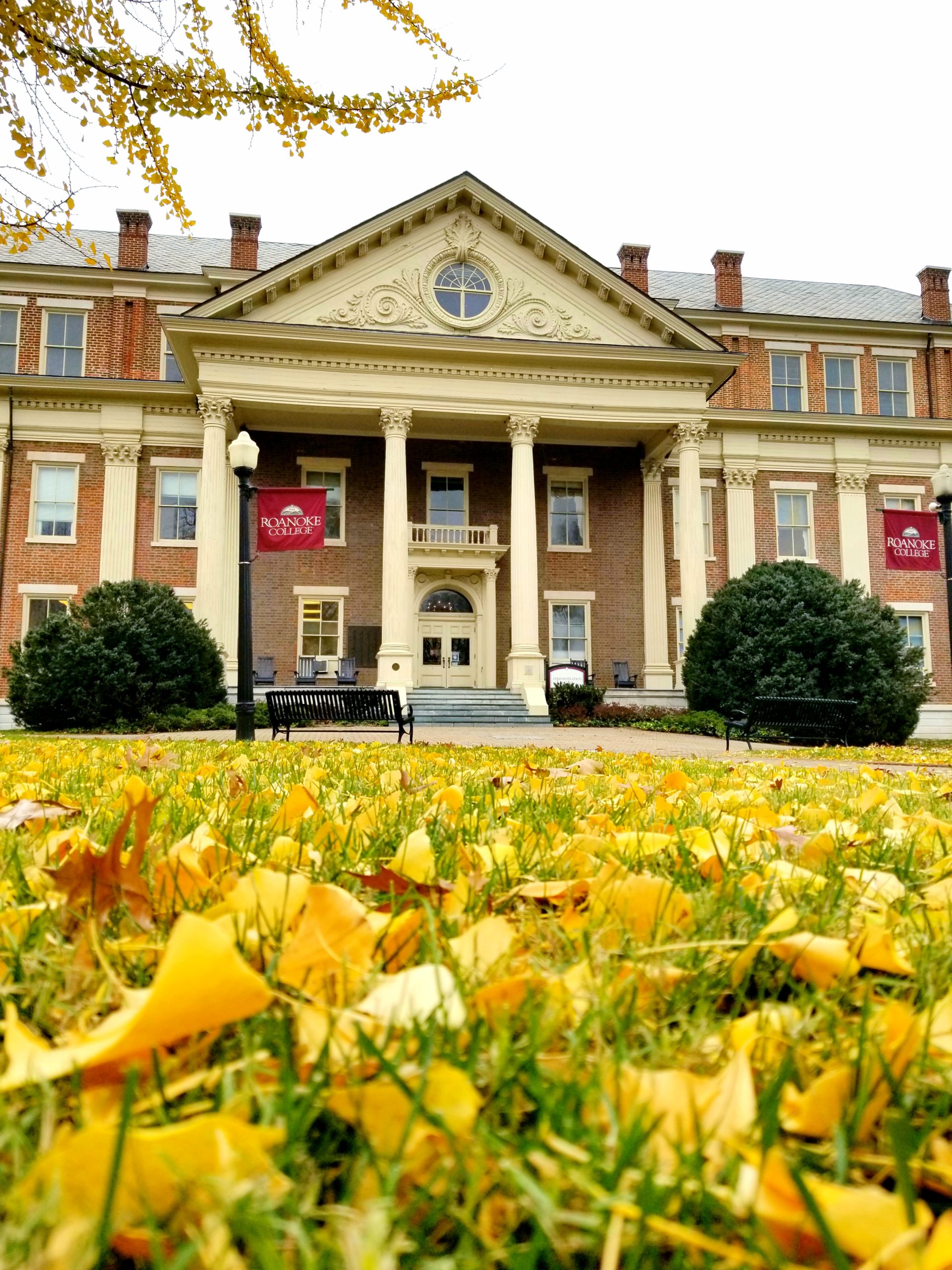
When I decided to go back to school, I ran into this problem. Thanks to my other habits, I was aware that I was buying a good amount of plastic when I’d buy school supplies, but I didn’t know what else to do. A year later, I had it down to a science. Now, in my final year of college, I have a lot of tips and favorite products to make going back to school less wasteful and often times even less expensive for you.
Tip #1: Use the notebooks that you already have.
Many of us have half-used notebooks lying around. Notebooks that we never finished for a class or bought years ago and forgot about just sit there, unused. Look through your closets, storage boxes, and desk and pull them out. Take out any pages that you wrote on (saving ones with useful information on it for future courses or that you found interesting—I keep those kinds of pages in a separate binder that I still read through to inform my school essays and writing), and they’re as good as new. Gather all of them, and if you still need more, that’s what tip #2 if for.
Tip #2: Buy notebooks (and a planner) that are made with the planet in mind.
Whether that means you buy a Decomposition Book, a notebook made from a used book cover, or a notebook made from recycled materials, it’s all valid. Some alternatives will be more expensive than others, but when in doubt aim to get notebooks that don’t have glossy covers because those are less likely to be made from sustainable materials. For a planner, my favorite brand is Green Dreamer, but Ink and Volt have cloth options as well!
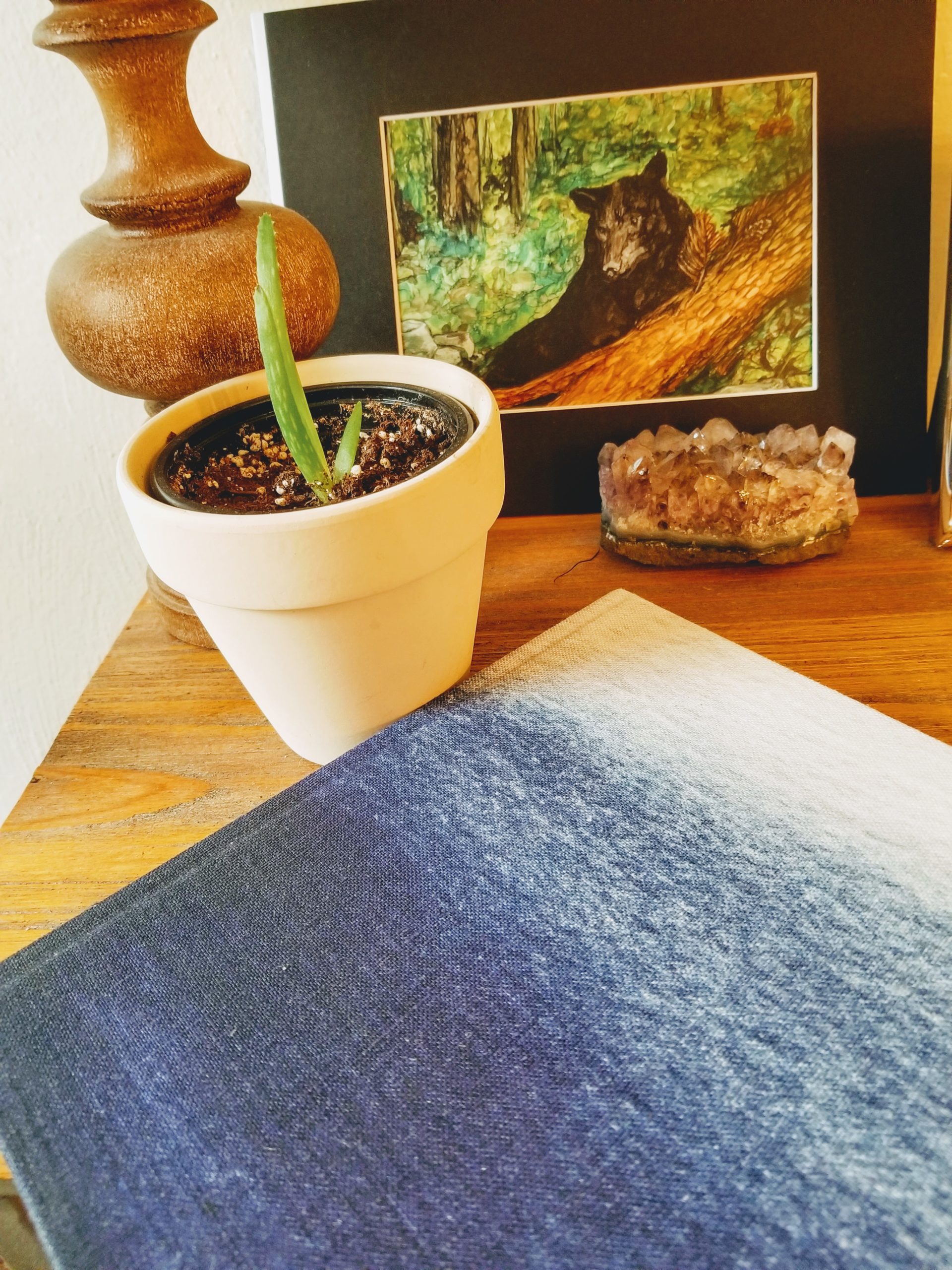
Tip #3: Don’t write on your school supplies—buy paper tape.
When we write what class a notebook is for in big letters, if we don’t finish it it can be tempting to just toss it because the label is no longer relevant. If you did this already, don’t fear. Just buy some paper tape, and write the label on that, covering up the old label. You can use this as labels for your binder, folders, notebooks, textbooks, and more.
Tip #4: Buy paper folders rather than plastic ones.
These will be cheap and more eco-friendly as well, but the cheapest thing to do is to check if you already have some that you can use—whether it’s individual folders or a file binder. Whatever works for your budget or whatever you have on hand is totally fine.
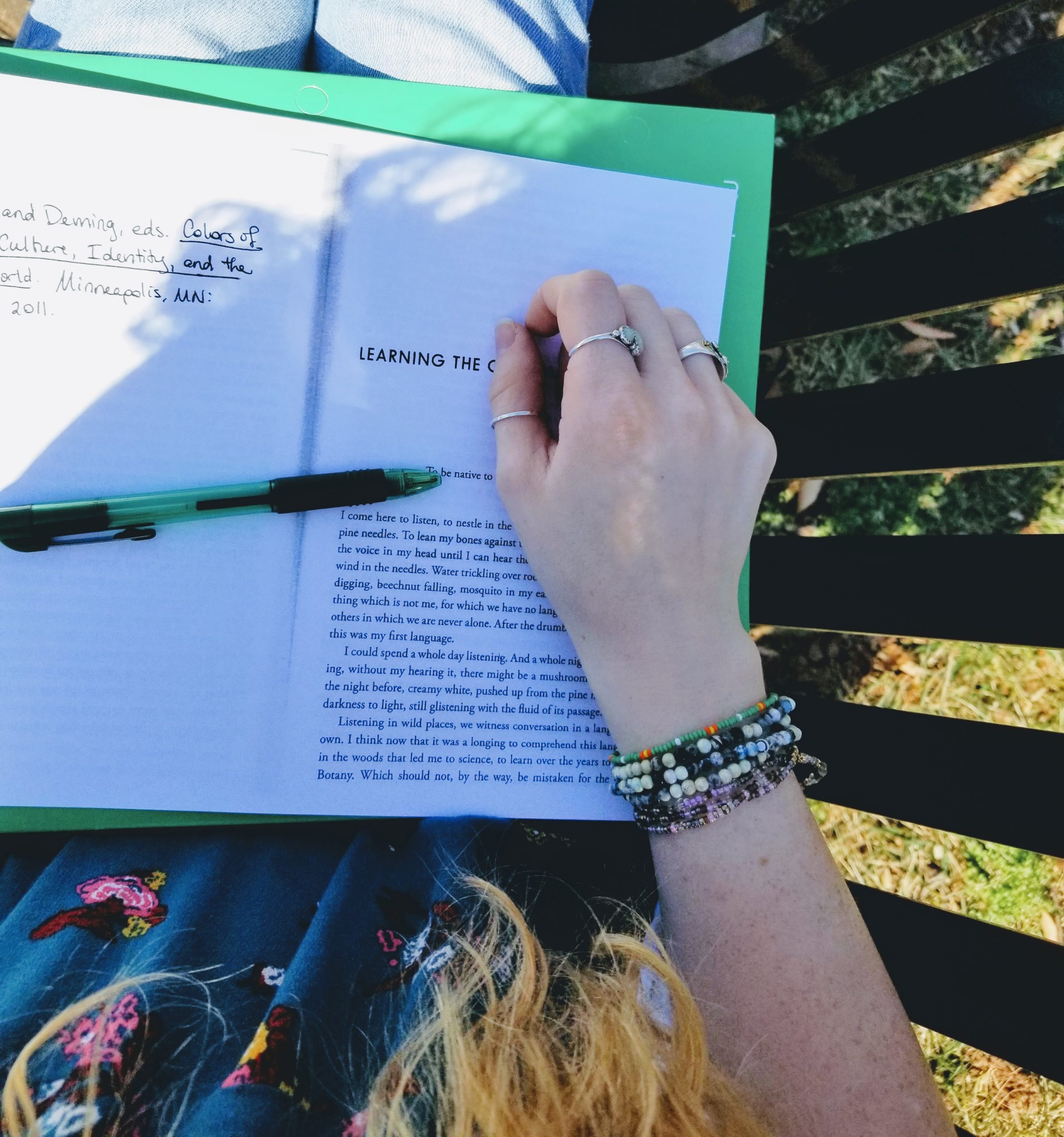
Tip #5: If you don’t have a backpack already, buy one that will last you a long time and is made from natural materials.
Companies like Terra Thread or Fjallraven use eco-friendly materials and are really high quality (with the latter though, just make sure to pick a vegan bag- one without a leather brand patch on it). Look for companies that are inventive or use litter to make bags like Alchemy Goods. Look for companies that are a B-corp or genuinely do something good with a portion of the proceeds. If you get one that will last, you’ll save money in the long run and you’ll need to buy less backpacks—saving your wallet and the planet in the process.
Tip #6: Use pens that you already have lying around—we all have them.
All of us have pens, pencils, and other writing utensils lying around, and yet each school year we buy more—adding to the pile of unused utensils when school ends. Use what you have. If you absolutely need more pens, buy from a company that either makes high quality metal pens (like fountain pens) or pens made from things like grass or bamboo.
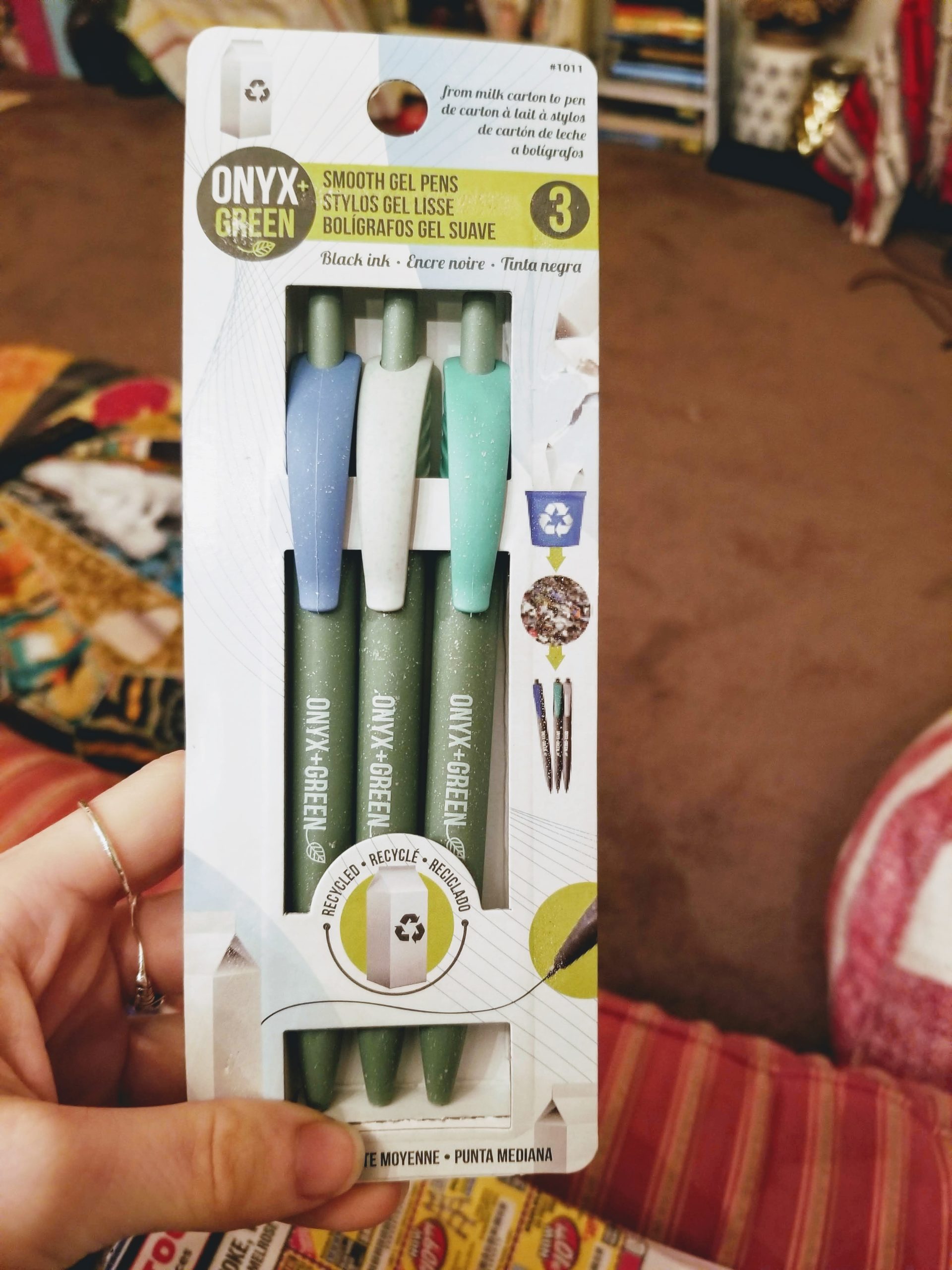
Tip #7: Make sure to bring hand sanitizer in a metal or glass container.
Companies like Plaine Products make really great hand sanitizers that don’t come in plastic and work just as well. Glass ones are beautiful, but keep in mind that they do break more easily. These products are going to be more natural and effective as well, and they will smell a lot better.
Tip #8: Bring reusables with you, and consider making a make-shift zero waste kit for your backpack.
It’s important to be prepared, especially when you’re busy with classes, so we should all keep a few things with us. Things like silverware from home wrapped in a cloth napkin or un-paper towel, a mug or reusable coffee cup (collapsible ones are super convenient), your water bottle (maybe put the napkin and utensil bundle in it), and a bowl or plate that can be collapsed. You can put it all in a lunchbox that you already have or one from a zero-waste shop (or even just a canvas bag).
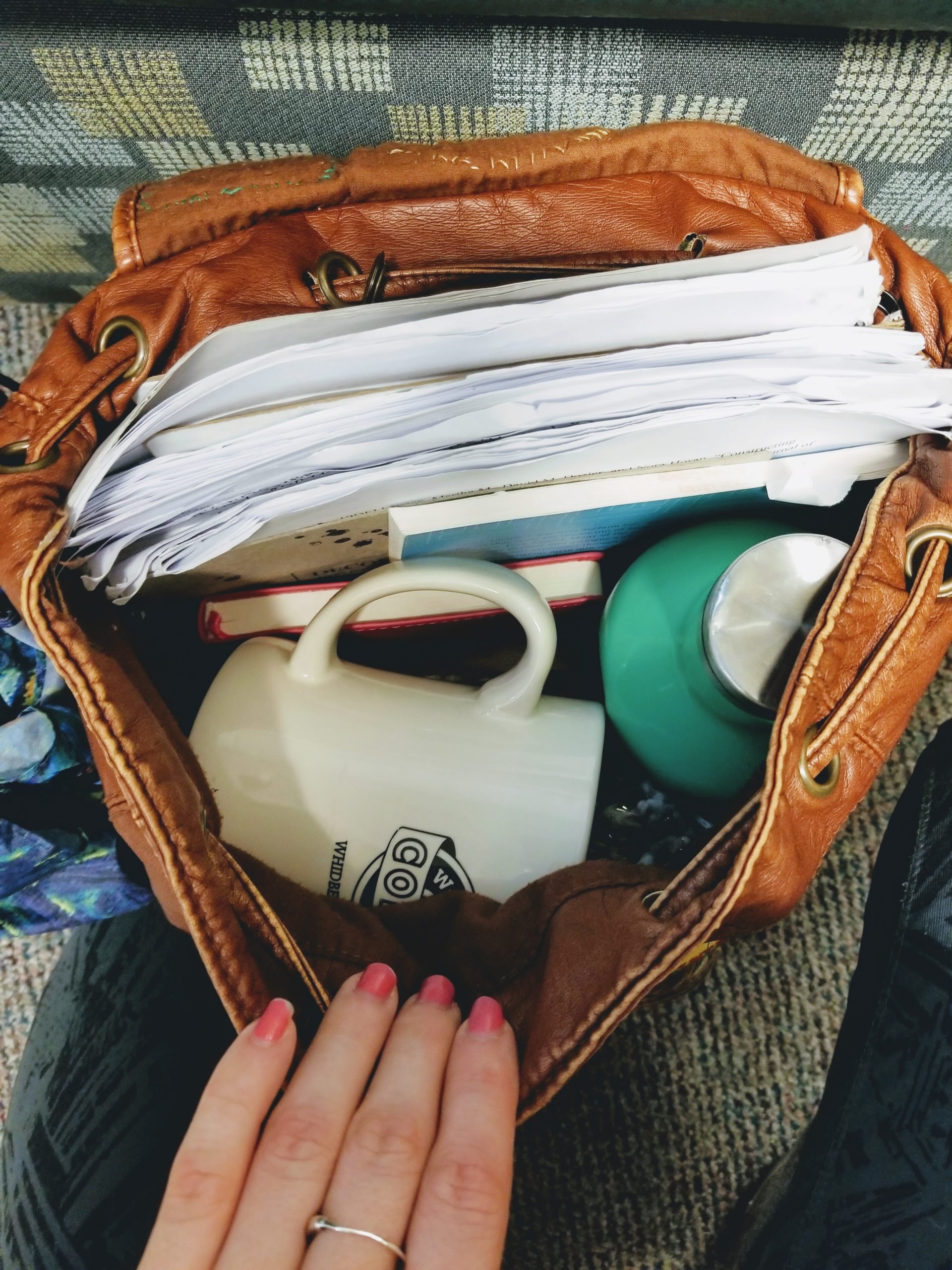
Tip #9: If you need to buy food while at school, and it comes in packaging, aim for things that have packaging that are easier to recycle.
If you have the choice between a can of chips or a bag of chips, choose the can of chips because a bag is virtually impossible to recycle. If you have the choice between a plastic bottle of juice or a lunchbox, pick the bottle because it will generally be easier to recycle. If you have the choice between a bag of salad or a plastic to-go container—choose the latter. Just wash it out after and recycle. It’s okay if you didn’t have time to meal prep and you need to eat something. Take care of yourself and nourish your body. Just try to get things that are the next best thing to having no packaging.

Tip #10: Bike, carpool, or walk to school if possible and don’t go home in between classes.
When you’re constantly driving back and forth it is wasteful and uses a lot of gasoline. Consider getting there in a less damaging way, and then stick around until you’re done for the day with classes and meetings. Do homework at your library, or grab a bite with friends at the cafeteria. Study outside on the quad or just take a walk around campus for some exercise. There is plenty to do in between classes, and chances are you need to study or get work done anyways and that can be done at the library.
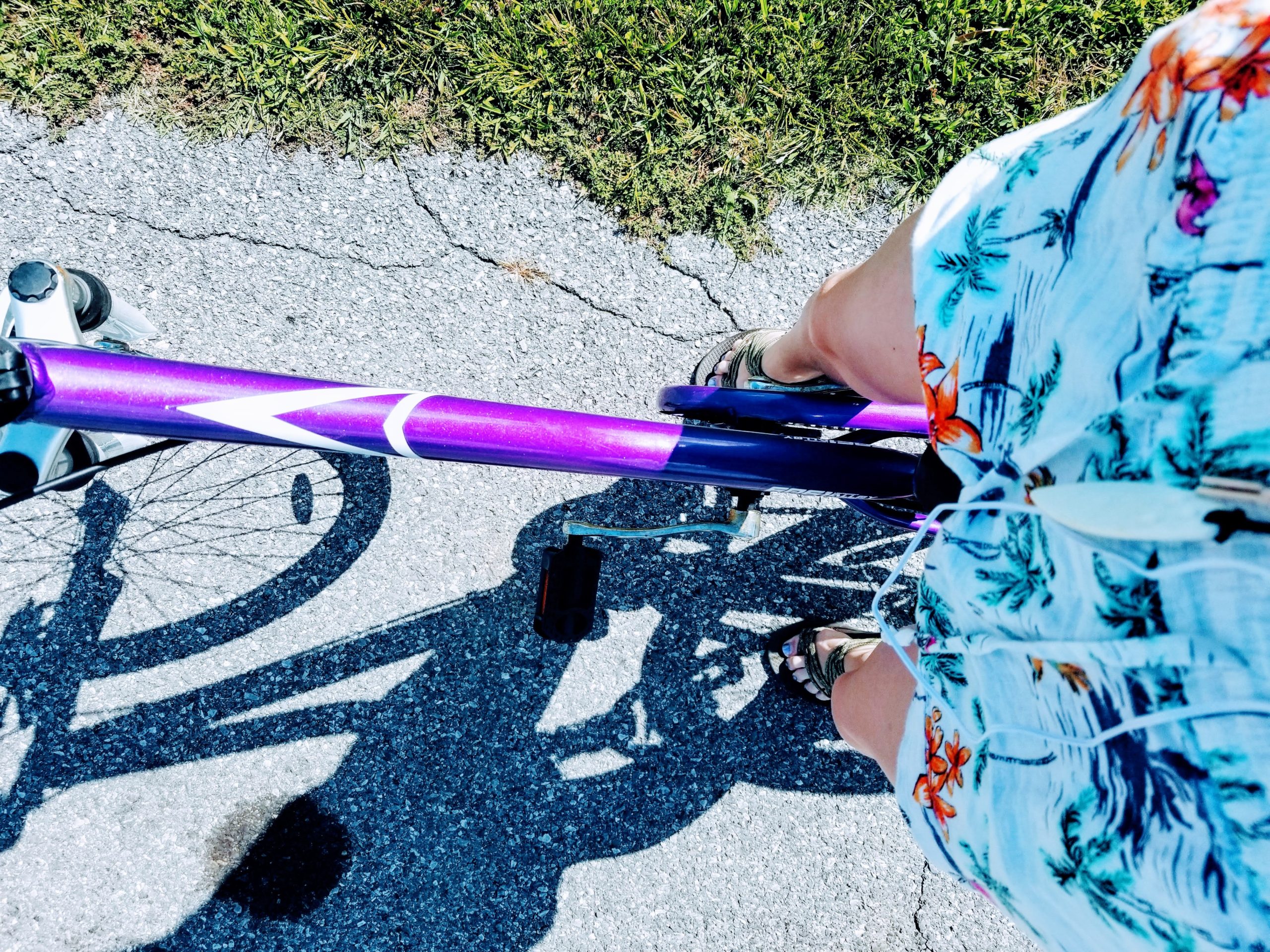
Get more like this—Sign up for our daily inspirational newsletter for exclusive content!
__
Photo: Emily Iris Degn
The view other posts like this on Peaceful Dumpling.
